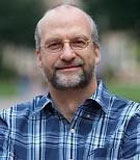For most of my career, I never thought about generosity as interesting to study, except perhaps as one component of broader “prosocial” outcome measures. Regarding financial giving, for instance, issues around charitable donations, philanthropy, and non-profit budgets always struck me as boring topics. Then, about four years ago, the immense potential power for good of generous voluntary financial giving dawned on me. I had seen in a previous study of adolescents that I had conducted how much generous financial giving to youth organization and religious programs that work with youth could make a positive difference in their lives. I was also in the process personally of correcting my own relatively ungenerous financial giving. Money alone cannot promote the common good, but financial resources are often necessary to make good and important things happen in the world. Increasingly, I realized the major difference that variability in generosity of many sorts makes for human wellbeing. The more I studied generosity, the more I saw that its expression does not vary according to people’s simply objective capacity to give. That raised a host of fascinating sociological questions about differences in generous behaviors. The rest is history.
Research Projects
- Science of Generosity: Causes, Manifestations and Consequences of Generous Behaviors
- The Social Contagion of Generosity
- The Family Cycle of Kindness and Generosity
- Religious Institutions and Generosity: Catholicism and Islam
- The Inherent Sociality of Giving and Altruism
- Attachment Formation, Compassion and Generosity
- Does Microfinancing Promote Generosity?
- The Foundations of Marital Generosity
- The Neural Circuitry Underlying Altruistic Behavior
- Generosity from an Intercultural Perspective
- The Causes and Effects of Workplace Generosity
- The Causes of Intergenerational Generosity
- The Development of Prosocial Behavior
- The Socioeconomic Basis of Generosity in Britain





What an exciting discovery and field of study! Thank you so much for sharing it!